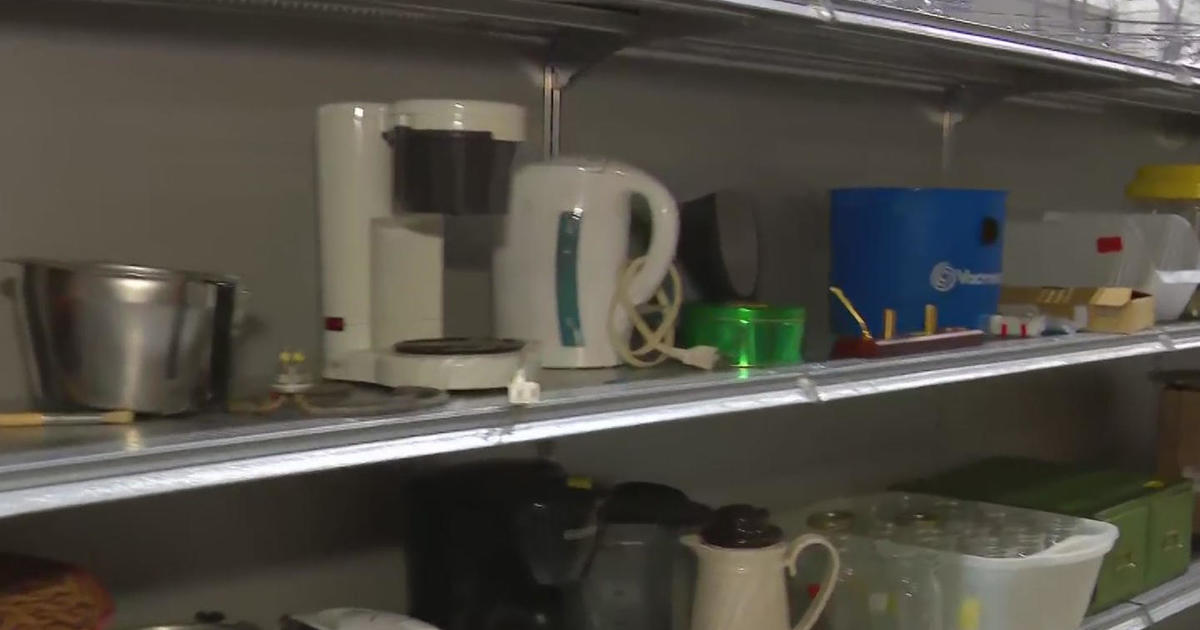Movie Blog: 'More Than Honey' Gives A Hive-View Look Into What's Killing Bees
---
In the last year, I've grown pretty tired of gloomy documentaries that herald the death of this or that animal, landscape or global food staple. While I might sympathize with the filmmakers' causes, or even believe in their ideas, I just get tired of their arguments, their choices of tone and the tropes they deploy. The pre-credit roll call-to-arms, in particular, now merits an automatic eye roll.
Thankfully, More Than Honey never prompted such a reaction. Right now I'm tempted to describe the doc as refreshing and nutritious as honey. And I will. More Than Honey is just that -- it's smart, multi-layered, glittering with interesting characters, varied scenes, and Planet Earth-pretty images of bees...bees flying, working, mating, dying, enduring. More Than Honey is easily one of my favorite science docs this year. And while it's by no means all doom-saying, don't think this movie won't give you pause. And loads to think about.
But before my praise is lopped on too thick, let's talk details. Director Markus Imhoof structures the film with multiple fronts that coincide with various characters. We start in Switzerland, with the filmmaker's grandad: an old-time bee farmer who does things on the small-scale, ever cigar smoking, working with docile native bees that pollinate Alpine flowers. On the other front, there's the American beekeeper: a card-carrying capitalist who trucks his bees all over these United States to pollinate crops for farmers who pay him handsomely. His is the modern bee-keeping. But there's a problem with both the old and the new bee keeping schools: mass die offs.
I'm sure you've heard. WCCO has done stories on it. The effect is global and often labeled a mystery. But Imhoof doesn't present it as such. He shows many of the diseases, chemicals and pests that are devastating bee populations across the globe. For instance, he gets cameras into the honeycomb -- which is totally amazing, by the way -- showing a mite that latches itself to the bee, sucks its life-blood and leaves it with a wing-deforming virus. Just so you can relate, Imhoof tells you to imagine a mite on your body, sucking your blood, that's the size of a rabbit. Poor bees. Indeed, we see a virus called foulbrood that forces the Swiss beekeeper to kill off his colonies. You can see the emotional toll it takes on the old man's face. We even see bees die from apparent stress in the U.S., from traveling all over in semi-trailers and being kept on a diet of high fructose corn syrup. The situation, in short, is dire.
But at least it's not as bad as China. There, Imhoof shows to literally jaw-dropping horror, farm workers hand-pollinating trees. Where are the bees? Killed by Mao, allegedly. The ruler had reportedly ordered the sparrows killed so that his people would have more to eat. But a billion dead sparrows led to loads of bugs, which were then killed with loads of pesticides. Bees fell as collateral damage. Now many plants in the world's most populous nation cannot have sex, cannot reproduce, cannot grow without the help of the human hand. It's sad, really.
By the end of the movie, you get the feeling that we've domesticated bees to a dead end. They've become too docile to endure, as predators evolve and industry demands ever more. It's heartbreaking to see such hard-working and globally-necessary creatures fall in such numbers. Strangely, a Pixar-ishness is brought out by the beauty of the Imhoof's images and his nuanced storytelling. The little, winged, golden-haired bees become characters, girls we root for. And Imhoof even gives us hope as to how they might succeed. I won't reveal the idea entirely, but I will say it involves a bee species known to be incredibly dangerous, at least, to the human hivemind.
More Than Honey is only playing at the Lagoon for a week. And if you consider yourself a David Attenborough fan, this is a must-see -- absolutely required watching. It's a beautiful, thought-provoking piece of work that easily merits multiple watches. Hell, it can even be interpreted in multiple ways. Thinking on it now, I can imagine someone seeing the bees -- the tireless, stoic workers they are -- as reflecting humanity's own struggle with industry, disease and modernity.



